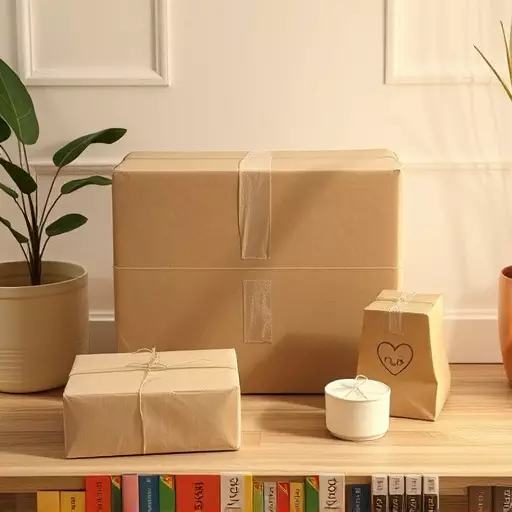In today's market, businesses must shift from traditional dense packaging to custom and eco-friendly fragile packaging solutions to balance product protection with environmental sustainability. Driven by consumer demand and regulatory bodies, this transition aims to reduce waste and create a greener supply chain. By leveraging innovative materials like biodegradable polymers and plant-based compounds, manufacturers can develop effective, sustainable packaging that minimizes waste while safeguarding delicate items in e-commerce environments, ultimately catering to environmentally conscious consumers.
“Discover innovative approaches to fragile packaging with a focus on sustainability. In an era where environmental considerations are paramount, understanding lightweight, fragile packaging—its challenges and opportunities—is essential. This article explores the need for customized solutions, delving into eco-friendly alternatives that revolutionize the industry. We present implementable strategies to ensure effective and sustainable fragile packaging, addressing both functionality and environmental impact.”
- Understanding Lightweight Fragile Packaging: The Need for Custom Solutions
- Eco-Friendly Alternatives: Revolutionizing the Industry
- Implementable Strategies for Effective and Sustainable Fragile Packaging
Understanding Lightweight Fragile Packaging: The Need for Custom Solutions

In today’s market, understanding fragile packaging solutions is paramount for businesses aiming to protect their products while minimizing environmental impact. Traditional packaging often relies on dense materials, leading to excessive waste and a strain on resources. This prompts the need for custom fragile packaging—solutions tailored to specific product requirements, ensuring both protection and sustainability.
The push towards eco-friendly fragile packaging is not just a trend but a necessary shift driven by consumers and regulatory bodies alike. By embracing innovative materials and designs, manufacturers can create effective fragile packaging solutions that are kind to the environment without compromising on safety. This not only reduces waste but also contributes to a greener supply chain, addressing both economic and ecological concerns.
Eco-Friendly Alternatives: Revolutionizing the Industry

In recent years, the demand for sustainable and eco-friendly alternatives in the packaging industry has been on the rise. This shift is partly driven by consumers who are increasingly conscious of environmental issues and their impact on the planet. In response, manufacturers have begun exploring innovative solutions, particularly in the realm of fragile packaging. Eco-friendly fragile packaging offers a promising approach to reducing the environmental footprint associated with traditional packaging materials.
Custom fragile packaging, designed with eco-consciousness in mind, leverages sustainable resources like biodegradable polymers, recycled content, and plant-based compounds. These materials not only minimize waste but also provide effective protection for delicate items during transportation. By embracing these green alternatives, companies can contribute to a more sustainable future while meeting the needs of customers who prioritize environmentally responsible choices.
Implementable Strategies for Effective and Sustainable Fragile Packaging

In today’s e-commerce landscape, ensuring safe arrival of delicate and fragile items is paramount for both retailers and consumers. Implementable strategies for effective and sustainable fragile packaging solutions can significantly enhance product protection during transit while minimizing environmental impact. One key approach involves adopting custom fragile packaging tailored to specific item shapes and sizes. This personalized approach not only prevents damage but also reduces the amount of excess material used, aligning with sustainability goals.
Furthermore, transitioning to eco-friendly fragile packaging is a game-changer in responsible product shipping. Innovations such as biodegradable materials, recyclable containers, and optimized designs minimize waste and carbon footprint. By embracing these fragile packaging solutions, businesses can contribute to a greener supply chain while maintaining customer satisfaction through reliable product delivery.


